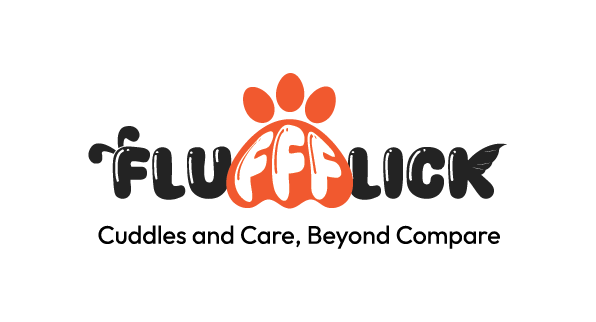Oral health is a crucial aspect of your pet overall well-being. Just like humans, pet can suffer from dental issues that may lead to more serious health problems if left untreated. Ensuring that your pet’s teeth are clean and their mouth is healthy can prevent discomfort, infections, and even more severe conditions like heart disease. In this blog, we’ll explore the importance of maintaining your pet’s oral health, with a focus on dogs, and provide practical tips for keeping their teeth clean and their mouths healthy.
1. Why Oral Health is Important for Your Pet
Oral health plays a significant role in your pet’s overall health. Poor dental hygiene can lead to the buildup of plaque and tartar, which can cause bad breath, tooth decay, and gum disease. If left untreated, these issues can progress to more severe conditions such as infections, loss of teeth, and even systemic diseases that affect the heart, liver, and kidneys.
For dogs and other pets, maintaining clean teeth and healthy gums is essential for:
- Preventing Pain: Dental issues can be painful for pets, leading to difficulty eating and a decrease in their quality of life.
- Avoiding Infections: Infections in the mouth can spread to other parts of the body, potentially leading to life-threatening conditions.
- Improving Overall Health: Good oral hygiene supports your pet’s immune system and contributes to their overall health and longevity.
2. Daily Care: Clean Between Your Pet’s Teeth
One of the best ways to maintain your pet’s oral health is through daily care that includes brushing their teeth. Cleaning between your teeth is as important for pets as it is for humans. Here’s how you can effectively clean your pet’s teeth:
- Use Pet-Specific Toothpaste: Never use human toothpaste for pets, as it can contain ingredients that are harmful to them. Instead, choose a toothpaste designed specifically for pets, which is safe for them to swallow and often comes in flavours they enjoy.
- Brushing Technique: Use a soft-bristled toothbrush or a finger brush to gently clean your pet’s teeth. Focus on the outer surfaces of the teeth, where plaque tends to accumulate. If your pet is new to brushing, start slowly, and reward them with praise or a treat to make the experience positive.
- Frequency: Ideally, you should brush your pet’s teeth daily. If this isn’t possible, aim for at least three times a week to maintain their oral hygiene.
- Dental Chews: For pets that resist brushing, dental chews can be a helpful supplement. These chews are designed to clean teeth and freshen breath as your pet gnaws on them.
3. Diet and Dental Health
Your pet’s diet plays a significant role in their oral health. Certain foods can help keep their teeth clean by reducing plaque buildup:
- Dry Kibble: Feeding your dog dry kibble instead of soft or canned food can help clean their teeth as they chew, reducing the risk of plaque formation.
- Dental Diets: Some pet foods are formulated specifically to promote dental health, with larger kibble sizes or special coatings that help break down plaque.
- Avoid Sugary Treats: Just like in humans, sugary treats can contribute to dental decay in pets. Choose treats that are designed to support oral health instead.
4. The Importance of Regular Vet Visits
Regular veterinary check-ups are essential for maintaining your pet’s oral health. Your vet can perform professional cleanings and check for signs of dental disease that you may not notice at home.
- Visit the Dentist Regularly: Just as you would visit the dentist regularly for your oral health, it’s important to schedule regular dental exams for your pet. Your vet will typically include an oral exam during routine check-ups but may recommend more frequent dental visits if your pet is prone to dental issues.
- Professional Cleanings: During a professional cleaning, your vet will remove plaque and tartar buildup from your pet’s teeth, often under anaesthesia. This deep cleaning is crucial for preventing gum disease and other oral health problems.
- Early Detection: Regular dental exams allow for the early detection of potential problems, such as broken teeth, oral tumours, or signs of gum disease. Early treatment can prevent more serious health issues down the road.
5. Recognizing Signs of Dental Problems
It’s important to recognize the signs of dental problems in your pet so that you can seek veterinary care promptly. Some common signs include:
- Bad Breath: Persistent bad breath is often the first sign of dental issues in pets.
- Discolored Teeth or Gums: Yellow or brown teeth, along with red, swollen, or bleeding gums, can indicate dental disease.
- Difficulty Eating: If your pet is reluctant to eat or seems to be chewing on one side of their mouth, it may be due to dental pain.
- Pawing at the Mouth: Pets may paw at their mouth or face if they are experiencing oral discomfort.
If you notice any of these symptoms, schedule a visit to your vet as soon as possible.
Conclusion
Maintaining your pet’s oral health is a crucial part of their overall care. By cleaning your pet’s teeth, providing a healthy diet, and ensuring regular veterinary visits, you can help prevent dental issues and keep your pet healthy and happy. Remember, a clean mouth leads to a healthier pet, and a healthier pet leads to a happier life for both of you.

